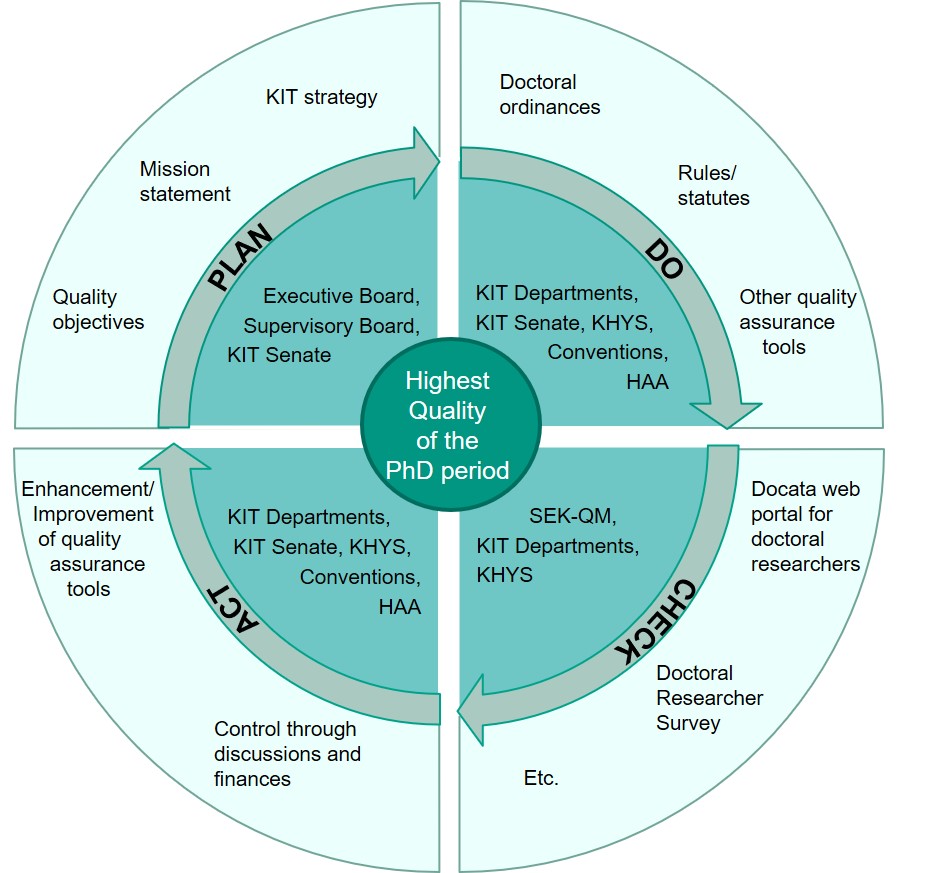Quality Objectives and PDCA Cycle
Every quality management system organizes and checks the achievement of self-defined quality objectives, which are derived from the ►mission statement and thus from the ►Overarching KIT 2025 Strategy. It reads: "Promoting young scientists is just as important an objective of KIT as the education of students. Especially in the phase of working for a doctorate as the first step in a career, KIT intends to offer good starting opportunities to its graduates."
The global PhD quality objective, to which KIT has been committing itself when developing the “QualityDoc@KIT” quality assurance concept, is to achieve the “highest quality of the PhD period”. This objective is the focus of the general quality cycle (PDCA cycle) for continuous improvement processes.
Quality cycle (PDCA cycle) applicable to the PhD period:

Three main objectives have been derived from the claim of “highest quality of the PhD period”. These objectives are based on the recommendations of the Ministry of Science, Research and the Arts of Baden-Württemberg laid down in 2013 in the guidelines: ▶ Qualitätssicherung im Promotionsverfahren: Baden-Württemberg geht voran (Quality assurance in the PhD procedures: Baden-Württemberg is leading the way (in German only); MWK 2013).
The three main objectives were subdivided into several subordinate objectives:
(1) Strengthening the transparency and quality of PhD conditions
- Improving data on PhD procedures and PhD conditions
- Optimizing processes and making them more transparent
- Ensuring dialogue between central and decentralized actors
- Promoting a comprehensive qualification of doctoral researchers
(2) Enhancing culture of PhD supervision
- Ensuring and improving the quality of supervision
- Ensuring PhD success while complying with an appropriate duration of the doctorate
- Appreciating supervision
- Increasing the quality of PhD programs
(3) Strengthening the PhD culture
- Enabling doctoral researchers’ participation
- Promoting doctoral researchers’ networking
- Appreciating doctoral researchers’ achievements
- Offering options for conflict resolution
